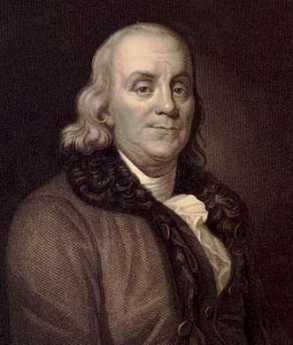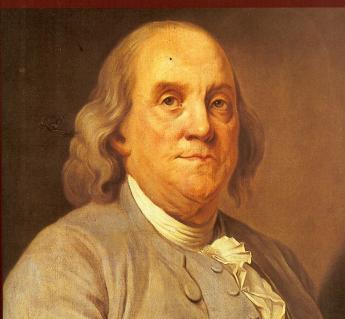Related Topics
Benjamin Franklin
A collection of Benjamin Franklin tidbits that relate Philadelphia's revolutionary prelate to his moving around the city, the colonies, and the world.

American Finance After Robert Morris
Robert Morris can be fairly said to have made the American Revolution possible.
Personal Finance
The rules of financial health are simple, but remarkably hard to follow. Be frugal in order to save, use your savings to buy the whole market not parts of it, if this system ain't broke, don't fix it. And don't underestimate your longevity.
Tourist Walk in Olde Philadelphia
Colonial Philadelphia can be seen in a hard day's walk, if you stick to the center of town.
Old Age, Re-designed
A grumpy analysis of future trends from a member of the Grumpy Generation.
Right Angle Club 2012
This ends the ninetieth year for the club operating under the name of the Right Angle Club of Philadelphia. Before that, and for an unknown period, it was known as the Philadelphia Chapter of the Exchange Club.
Poor Richard's Wealth

|
| Benjamin Franklin |
I RISE to offer yet another toast to Benjamin Franklin. Like our two leading candidates for the Presidency of the United States, he leaves us uncertain whether he was a rich man pretending to be poor, or a poor man pretending to be rich. To clarify this mystery, I have mainly examined the circumstances of his retirement, and the contents of his last will and testament.
Although he reports that on arrival in Philadelphia at the age of seventeen, he spent his last pennies on a loaf of bread, he was able to retire from the printing business at the age of forty-two, planning to spend the rest of his life as a gentleman at ease. He was able to do so because he had assembled over fifty partners in the printing trade, scattered from Boston to Georgia; today, we would say he had sold franchises to his business. When he came to retire, he arranged to be paid off in eighteen installments, which ought to have lasted him to the age of sixty. That was well past the usual life expectancy at the time, but we can now see it would apparently have run out while he was still in London, acting as our ambassador to Parliament, leaving him without support for the last twenty-four years of his life. Apparently, this was the reason for his seeking postmasterships and acting in some overseas business capacity for Robert Morris, then one of the richest merchants in America.
Assuming he may have run out of money when he was sixty, we look to his final estate to see how he made out in his second career, whatever it was. His assets were in three general categories: land, bonds, and hard money. He bequeathed eleven houses, mostly in Philadelphia, to various relatives. He assigned the ownership in thousands of acres of land in Nova Scotia, Georgia, and Ohio. Just what a bond was in Eighteenth-century America is not exactly clear, but bonds of at least ten thousand pounds sterling were distributed, as well as ten thousand pounds of hard assets. And he forgave a large and undefined number of unpaid debts.
He gave George Washington his gold-handled cane, which had been given to him by Duchess Du Pont, for unknown reasons. His modesty was famous but can be questioned when he gave one of his portraits to be hung in the Council Room of the government of Pennsylvania. He gave his sister a portrait of a French King, with four hundred and eight diamonds set in its frame. He instructed her not to make the diamonds into jewelry because that would be ostentatious. And he instructed that his funeral be plain and simple, although it turned out to be one of the most elaborate parades and ceremonies of the age.
After a few months, Franklin reconsidered his will and wrote a famous codicil. Revoking the gifts to his grandchildren, he ordered that a thousand pounds be set aside for each of the cities of Boston and Philadelphia. His proposal was that this money is loaned to graduating apprentices in order to help them start their businesses, and after a hundred years he envisioned it would amount to hundreds of thousands of pounds; after two hundred years, it would be worth millions and could be used for public improvements. These funds were indeed established and the loaning did begin. Unfortunately after hardly fifty years had elapsed, so many apprentices had failed to repay their loans the experiment was discontinued. What had seemingly been lacking was sufficient will of the trustees to collect the loans with vigor.
Poor Richard may have been born poor at more than one time. But he certainly didn't stay poor, very long. A toast to Ben Franklin, on his birthday, in his club.
Originally published: Friday, January 20, 2012; most-recently modified: Friday, September 20, 2019